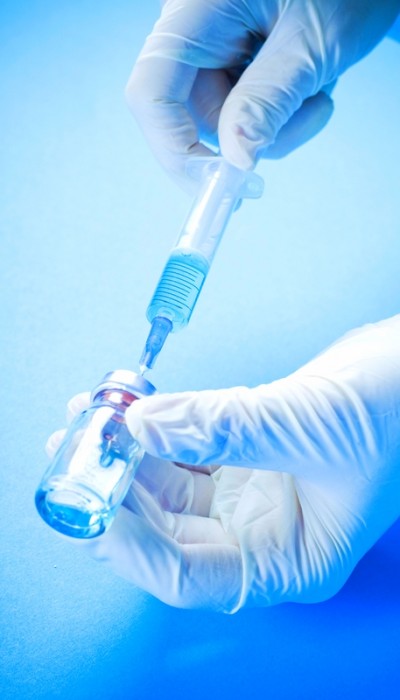Cat Vaccinations
WHY THE NEED FOR CAT VACCINATIONS
When kittens are nursing they ingest colostrum which is the early milk that contain short acting antibodies or protection against common feline diseases. By the time the kitten is 6 weeks of age most of that protection has worn off. That is why it is called passive immunity. The immune response needs to be stimulated in young kittens to develop a long or active immunity against said diseases. A kittens immune system is immature so it needs several boosters over time; usually every 4 weeks apart until it is about 16 weeks of age.
Cat vaccinations are not perfect but immunization is the best bet to keep a kitten healthy into adulthood. Many of these feline diseases such as feline distemper, feline leukemia and respiratory viruses are seen in kittens usually 6 months of age and under. Being protected allows the animal to grow and mature without being hindered trying to get over viruses that could stunt, not only its growth, but also its immune system.
WHICH DISEASES TO VACCINATE AGAINST?
It seems that cats have less medical issues to contend with compared to dogs. Cat vaccinations usually start at an early age. During the first physical exam at 6-8 weeks kittens get a booster of FDRC. This is a 3 in 1 vaccine that protects against 3 diseases: feline distemper, rhinotracheitis and calicivirus. The former is a disease that wipes out the immune system in kittens. Because of that, it also is called feline panleuopenia; a fancy word that means a complete and total decrease of a cats white cells. The latter two diseases cause severe respiratory infections in young kittens. Kittens are than boostered in another 4-5 weeks with FDRC and if 12 weeks of age or older, a rabies shot.
In between the above vaccine schedule veterinarians will usually perform a ELISAThis stands for: Enyzme Linked Immunosorbent Assay Test. When I started practicing in 1981 all of these tests had to be sent to a lab in NJ. Turn around was 3 days. Today, all medical practices use a SNAP(R) test by Idexx Labs to diagnose it in a matter of minutes. If the test is negative, the kitten gets immunized. test to check for the presence of feline leukemia or feline immunodeficiency virus; both severe immunosupressive diseases of cats. A negative test means the kitten undergoes a series of two cat vaccinations about 4 weeks apart than boostered annually.
Veterinarians can not throw all vaccines at the kitten all at once. Their immune systems are immature and can only take a handful of cat vaccinations at one time to insure a good immune system. When kittens turn into adults, the cat vaccinations can all be given at the same time.
One of the most difficult diseases in kittens to diagnose is the dry form of Feline Infectious Peritonitis (FIP). Both it and the easier diagnosed wet form totally destroy the immune system of the kitten. To this day, there is no specific test to rule out the disease. FIP is a coronavirus. Cats also get an intestinal virus caused by a coronavirus. Hence a positive test does not specifically tell the veterinarian whether the kitten has (had) the intestinal version or the FIP version. Back in the 1990’s, a vaccine was put on the market to immunize against FIP. It was a total failure as it only had about a 50-60% effective rate. This is bad. I used it in my OH practice but soon discontinued it for the above reasons.
Cat vaccinations should be performed only by a licensed veterinarian. Do not vaccinate kittens yourself thinking you are going to save money. Each animal gets a physical before injections begin. If the animal is not up to vaccination the visit is rescheduled at a future date. Cat vaccinations administered to a sick cat can easily worsen its condition. This is very difficult for a lay person to determine.
SIDE EFFECTS AND FREQUENCY OF VACCINATION
Kittens rarely develop allergies against vaccine components as puppies many times will. The most common side effect is lethargy. The kitten is often off its food and water. Some of these animals require antibiotics to get over this. Never, ever give aspirin or Tylenol® to ANY cat!! Cats are very, very sensitive to a lot of drugs that are normally given to dogs. Chalk that up to the cat not producing any gluconyl transferase in the liver; an important liver enzyme that breaks down drugs into non-toxic forms.
I have vaccinated thousands and thousands of cats in my career and yet to have diagnosed a feline sarcoma secondary to vaccine use. Maybe, I was fortunate but in my opinion it is important to vaccinate all healthy animals annually or at least every other year. This gives the immune system a “work out” plus animals are physically brought into the office so that they also get physical exams that many times will find something that would not have been detected if the cat had not been presented for vaccination. Vaccination of chronically ill or immunosuppressed animals is usually taken case by case. A veterinarian will use proper judgment weighing the pros and cons of vaccination in these cases.


